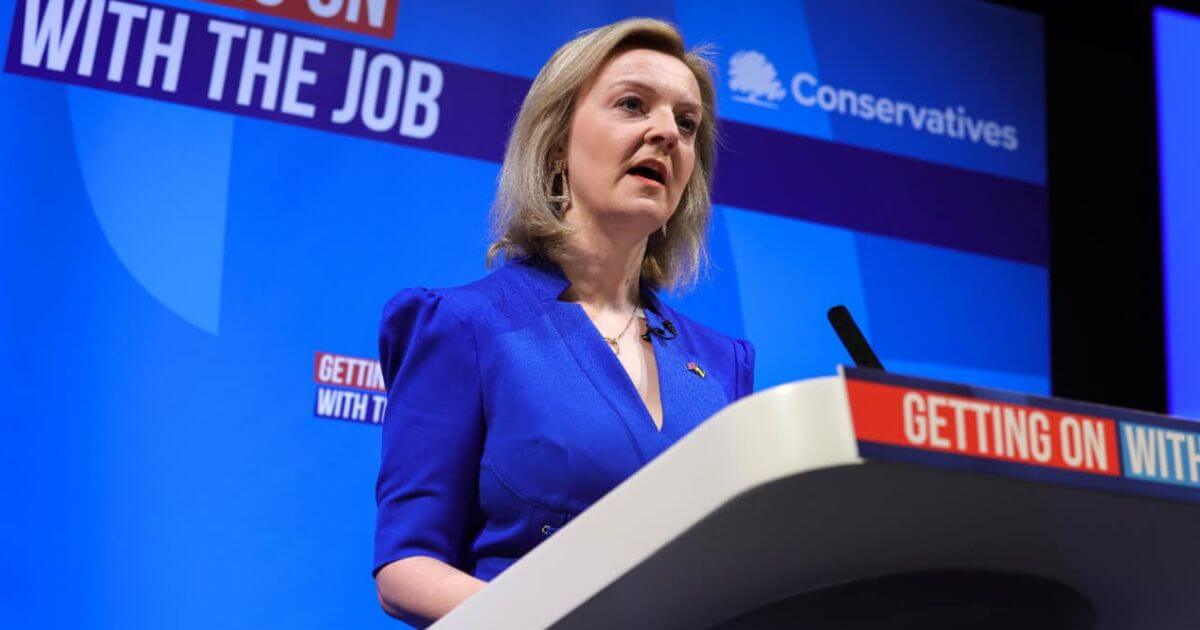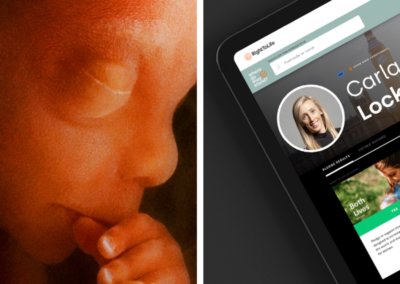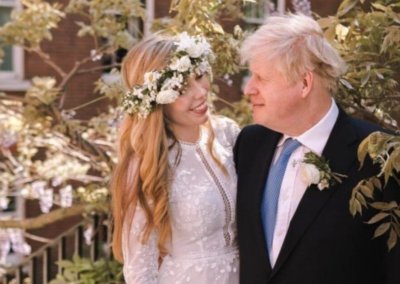Liz Truss MP has won the Conservative leadership contest by 81,326 votes to 60,399 and will replace Boris Johnson as Prime Minister.
This afternoon, Ms Truss will finalise her selection of Cabinet and ministerial roles. On Tuesday, she will be meeting the Queen at Balmoral where she will be appointed as the next Prime Minister.
From there, she is expected to arrive at Downing Street, where she will make her first speech as Prime Minister of the United Kingdom, before proceeding to make senior Cabinet appointments.
Voting record on abortion and assisted suicide
Since she was first elected as an MP in 2010, Ms Truss has either taken a pro-abortion position on votes or abstained. She has never taken a pro-life position on a vote.
Independent counselling
In 2011, she voted against introducing independent counselling for abortion.
The proposed changes regarding independent counselling would have stopped private abortion providers – who benefit financially from providing an abortion – from also providing abortion counselling. This service would have, instead, been outsourced to a third party that did not have a vested financial or ideological interest in providing abortions.
Polling from Savanta ComRes shows that there is strong public support for this change in the law, with 93% of women agreeing that a woman considering abortion should have a legal right to independent counselling from a source that has no financial interest in her decision.
Three-parent babies
In 2016, she voted in favour of allowing the creation of three-parent embryos, also known as mitochondrial donation.
Imposing abortion on Northern Ireland
In 2019, she voted in favour of an amendment to impose a law change on Northern Ireland to introduce abortion to the region.
Then in 2021, she voted in support of a motion to approve regulations to give the Northern Ireland secretary new powers to impose the commissioning of abortion services on Northern Ireland.
This imposed an abortion regime on Northern Ireland that includes the introduction of abortion right through to birth for disabilities including Down’s syndrome, cleft lip and club foot. It also introduced de facto abortion on demand through to 24 weeks and allowed sex-selective abortion through to 12 weeks.
There has been widespread opposition to the imposition of abortion regulations on Northern Ireland. The Northern Ireland Assembly passed a motion opposing the regulations that have been imposed on the province by the UK Government. Across the two votes held, 75 of 90 MLAs voted against the provisions in the regulations allowing abortion for non-fatal disabilities.
79% of respondents to the Government consultation on the regulations were opposed to any abortion provision in Northern Ireland beyond what was previously permitted. An open letter signed by over 18,000 people from Northern Ireland was delivered to the Prime Minister by disability campaigner Heidi Crowter who has Down’s syndrome. The letter called on MPs to oppose the regulations and let the Northern Ireland Assembly decide on abortion law for Northern Ireland.
During the leadership contest husting sessions earlier this year, responding to a question on whether she would abolish abortion in Northern Ireland, appearing to misunderstand the concept of devolution, she responded: “I’m afraid I don’t agree with you. We are a United Kingdom and we need all our laws to apply across the United Kingdom. That is what a Union is”.
She has abstained on a vote to introduce assisted suicide and a number of votes on abortion including introducing an explicit ban on sex-selective abortion.
Polling shows strong majority of women want cut to the 24-week abortion time limit
The current abortion time limit of 24 weeks is out of line with the majority of European Union countries, where the most common abortion time limit among EU member states is 12 weeks.
Furthermore, there currently is a contradiction in British law. The survival rate for extremely premature babies has doubled over the past decade, prompting new guidance from the British Association of Perinatal Medicine that allows doctors to try to save babies born as early as 22 weeks into a pregnancy.
This means that in one room of a hospital, doctors could be working to save a baby born alive before 24 weeks whilst in another room of the same hospital, a doctor could perform an abortion that would end the life of a baby at the same age.
Independent polling from Savanta ComRes shows that 70% of women want to see the time limit for abortion reduced to 20 weeks or below.
Right To Life UK spokesperson Catherine Robinson said: “Congratulations to Liz Truss on being elected as Prime Minister of the United Kingdom. We hope that she uses her position to protect the most vulnerable in the United Kingdom, including the unborn child, and increase support for women facing unplanned pregnancies”.
“While Liz Truss’s voting record and comments on life issues indicate that she takes a pro-abortion position on the issue, it is clear that polling shows that the public do not want to see further pro-abortion changes to legislation, with only 1% of the population supporting increasing the current abortion time limit from 24 weeks through to birth”.
“In fact, polling shows large majorities of women in the UK support changes to our abortion laws that would have a positive impact on lowering the number of abortions. 70% of women want the current time limit on abortion to be lowered and 91% of women want a ban on sex-selective abortion”.










